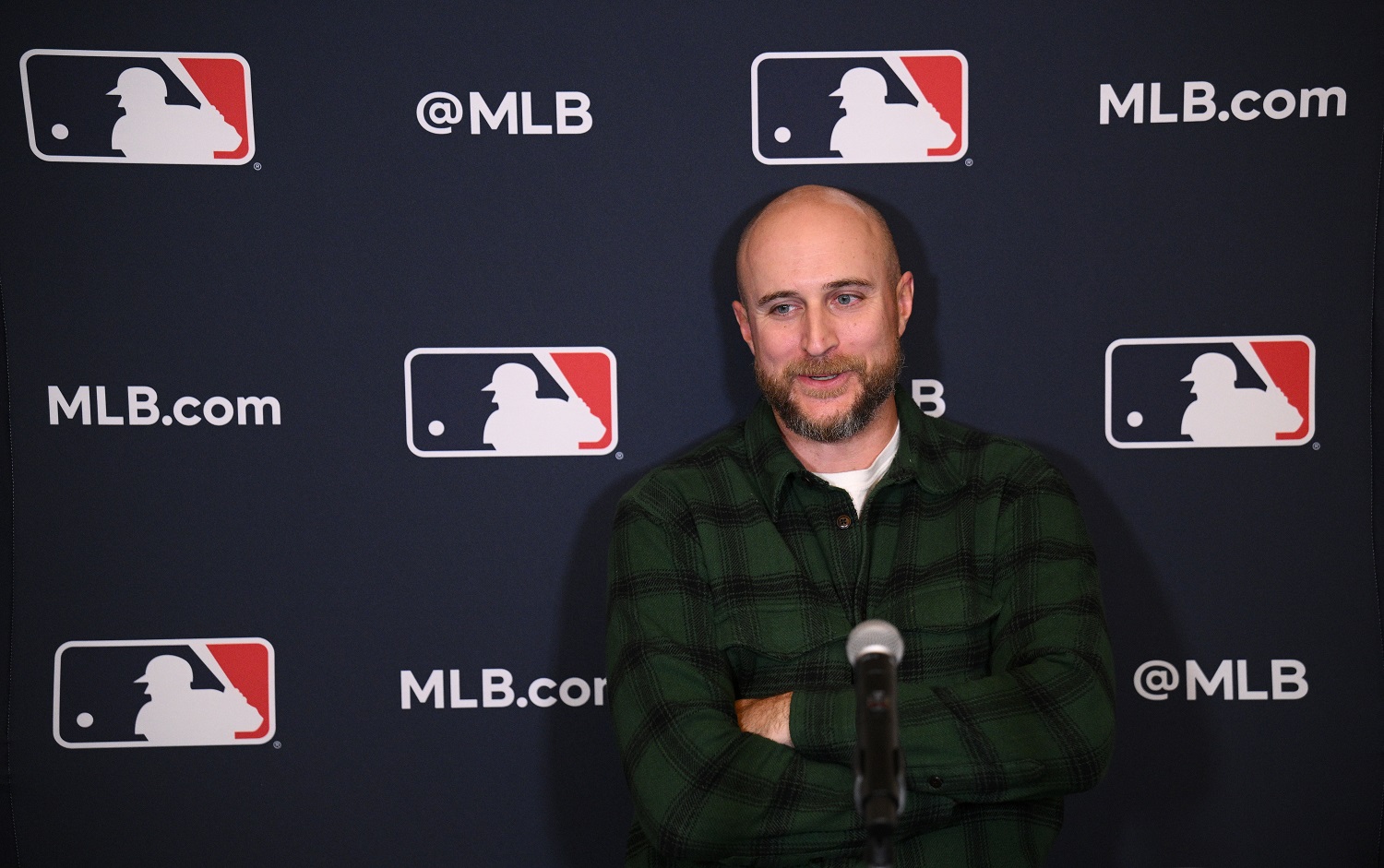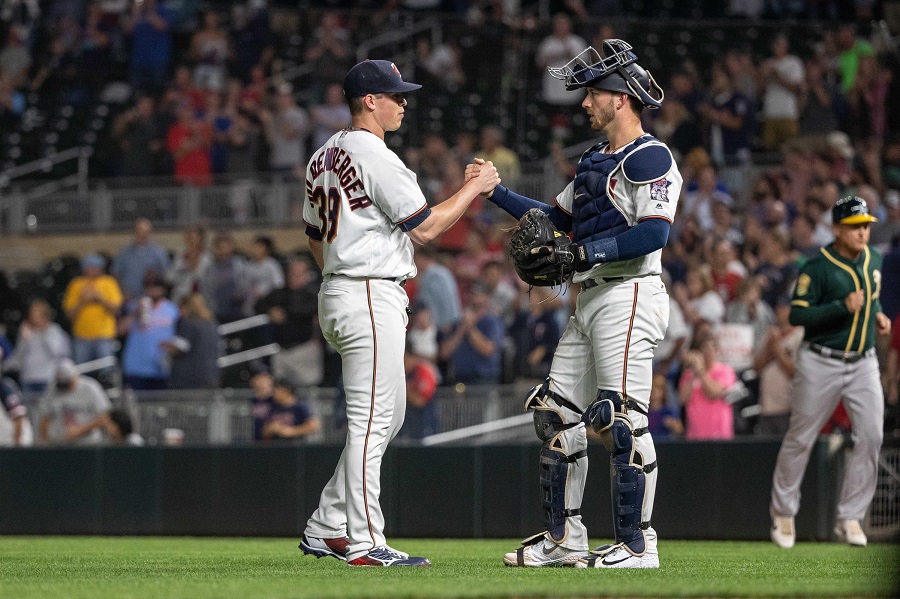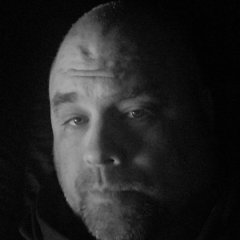Search the Community
Showing results for tags 'paul molitor'.
-
The Minnesota Twins will have Rocco Baldelli in the dugout for his fifth season as manager on Opening Day 2023. That represents one more season than his predecessor got, and an opportunity to cement his future with the organization....
- 27 replies
-
- rocco baldelli
- tom kelly
-
(and 2 more)
Tagged with:
-
When Derek Falvey and Thad Levine took over for Terry Ryan, the Twins ownership mandated that sitting manager Paul Molitor keep that role for one year. It was always assumed that the new front office would want to make a selection of their own, and after a short period of time, it was Rocco Baldelli...
- 27 comments
-
- rocco baldelli
- tom kelly
-
(and 2 more)
Tagged with:
-
Usually when guys are in their late 30s and 40s playing baseball in Minnesota, you can find them playing for teams like the Miesville Mudhens or the Cold Spring Springers, not the Minnesota Twins. Take a look at the best seasons by Twins players 35 and older. As players age, their physical ab...
- 7 replies
-
- josh donaldson
- paul molitor
-
(and 3 more)
Tagged with:
-
As players age, their physical abilities deteriorate and they often can not play as well as they used to play.. So when a player 35 or older has a great season, it is remarkable. Veterans are usually good locker room presences and leaders for younger players, but if they can also be one of the best...
- 7 comments
-
- josh donaldson
- paul molitor
-
(and 3 more)
Tagged with:
-
The question is – should we sign Cruz or just let a number of players DH? I thought I would look back at the Twins DH history. I ignore any DWAR since I am only interested in the DH. Tony Oliva was the first DH. In 1973 he was in 146 games. He hit 291/345/410 and his WAR was 0.7. The next ye...
- 2 comments
-
- jim thome
- tony oliva
-
(and 3 more)
Tagged with:
-
Brian Raabe dug into the batter’s box on a Sunday afternoon in September at Oakland-Alameda County Coliseum. And while the 1995 Twins were out of playoff contention the moment couldn’t have been more significant for Raabe. The 5’9 New Ulm, Minnesota native was making his Major League debut for his h...
- 3 comments
-
- brian raabe
- terry steinbach
-
(and 2 more)
Tagged with:
-
Reliability Machine During parts of the 2017 and 2018 seasons, Hildenberger was one of Minnesota’s most reliable relievers. Paul Molitor relied on him heavily during the team’s run to the 2017 AL Wild Card Game. He didn’t debut until the end of June and he went on to post a 3.21 ERA with a 1.05 WHIP...
- 9 comments
-
- trevor hildenberger
- rocco baldelli
-
(and 2 more)
Tagged with:
-
There’s been no larger point of contention for the Minnesota Twins in 2019 than the bullpen. While the starting rotation has dealt with ebbs and flows, it was the relief corps that constantly faced criticism. After acquiring Sergio Romo and Sam Dyson at the deadline, the group improved. Brusdar Grat...
- 6 comments
-
- minnesota twins
- trevor hildenberger
-
(and 2 more)
Tagged with:
-
With the announcement that Marwin Gonzalez signed with the Minnesota Twins, there was optimism in the Twin Cities. Optimism that he could be the missing piece. Hope that he would fill in the gaps on the roster. But he failed. No, I’m not talking his fielding or his hitting. I’m not talking about...
-
- marwin gonzalez
- paul molitor
-
(and 3 more)
Tagged with:
-
Who are our managers and who was the best? I have to say that I have a lot of questions about how to judge managers. They are given a roster to work with, they do not sign players or create the roster, they work with the GM and the GM is not judged like the manager. Right now we play in a lousy divi...
- 2 comments
-
- tom kelly
- paul molitor
-
(and 3 more)
Tagged with:
-
The DH began in AL only in 1973 and Tony Oliva with terrible knees was the first to take advantage of the new position. He was DH in 142 games, Mike Adams 16, Danny Walton 13 and 10 others appeared in various games. 1974 had Oliva 112, Killebrew 57, Terrell 20 and 5 others. Oliva continued with 120...
-
- david ortiz
- paul molitor
-
(and 2 more)
Tagged with:
-
On the field, Byron Buxton’s emergence might be the most important key to the Twins winning next season. While Buxton is key on the field, new manager Rocco Baldelli has a lot to prove to the front office and to Twins Territory. Right now, he is saying all of the right things but winning and losing...
- 19 replies
-
- rocco baldelli
- paul molitor
-
(and 3 more)
Tagged with:
-
Twins owner Jim Pohlad said Paul Molitor would continue to manage the club when Derek Falvey and Thad Levine took over the Twins front office. Molitor would win the AL Manager of the Year Award in 2017 as the Twins surprisingly qualified for the final Wild Card spot. It was hard to dump him at that...
- 19 comments
-
- rocco baldelli
- paul molitor
-
(and 3 more)
Tagged with:
-
Who were the Twins managers and were they any good? There is something strange about the manager position in baseball. It is not like we grow up hoping to be a manager. There seems to be no particular qualification, it is at the whim of the team. "In his essay "From Little Napoleons to Tall T...
- 2 comments
-
- minnesota twins
- managers
-
(and 3 more)
Tagged with:
-
In Part 1 today, find out which articles ranked 21 - 30 in terms of most viewed articles of 2018. 30. Twins to Hire Rocco Baldelli as Manager - October 24 Late on the night of October 24th, reports started trickling out that the Twins had made their decision. Derek Shelton had been informed that he...
- 5 comments
-
- trevor larnach
- paul molitor
-
(and 3 more)
Tagged with:
-
Happy New Year!! As we transition from 2018 to 2019, let’s take a quick look back. Over the next couple of days, we will go through the 30 Most-Viewed Twins Daily articles of 2018. I personally find this very interesting. It is interesting to see which articles captured our attention at the time and...
- 5 replies
-
- trevor larnach
- paul molitor
-
(and 3 more)
Tagged with:
-
Instead of regurgitating old, tired discussions about why the Twins needed to fire Paul Molitor (or Ron Gardenhire before him), let’s be a little more productive. Let’s not jump to hyperbole and automatically bash everything about the Twins brass. Like all of us, there is good and not-so-good in eve...
- 49 comments
-
- paul molitor
- derek shelton
-
(and 3 more)
Tagged with:
-
As the 2018 World Series is set to start tonight in Boston, indications would seem to be the the Twins are down to just a couple of final candidates for the next team manager. Twins bench coach Derek Shelton, Cubs bench coach Brandon Hyde, and Rays Major League Field Coordinator Rocco Baldelli appea...
- 49 replies
-
- paul molitor
- derek shelton
-
(and 3 more)
Tagged with:
-
The team's 2017 season earned Paul Molitor Manager Of The Year Award honors, and a winner for this last season has not yet been announced, meaning he is still the reigning Manager of the Year. But his position as the Twins manager has been in doubt each of the last three seasons. In 2016, the Twins...
- 284 comments
-
- paul molitor
- derek falvey
-
(and 2 more)
Tagged with:
-
USA Today's Bob Nightengale is reporting that Minnesota Twins manager Paul Molitor has been fired and a press conference this afternoon has been scheduled to announce it. Molitor managed the Twins for four seasons, two of which they exceeded expectations and two of which they did not. They finished...
- 284 replies
-
- paul molitor
- derek falvey
-
(and 2 more)
Tagged with:
-
Today the Minnesota Twins announced that Paul Molitor will not be brought back as Manager in 2019. With two years remaining on his freshly signed three year deal, it may come as a surprise to some, but it really shouldn't. While it hasn't been a certainty that the Twins front office would make a cha...
- 2 comments
-
- minnesota twins
- paul molitor
-
(and 2 more)
Tagged with:
-
Joe Mauer still would not tip his hand, too much, on whether or not he will return for a 16th season with the Twins in 2019. While we have seen on-field celebrations this season for Victor Martinez and David Wright, Mauer says that he's going to take a little time for other things before making such...
-
Paul Molitor grew up in St. Paul. He put in a great career at the University of Minnesota, because a high draft pick and had a Hall of Fame career. Joe Mauer grew up in St. Paul. He was the number one overall pick out of Cretin-Derham Hall in 2001, soared through the minor leagues and has had a ca...
-
The road woes continued for the Twins Saturday night as they stumbled through a sloppy game and took a beating from the Royals. The Twins are 43-31 in home games this season, but this loss dropped their road record to 24-50. They’re also now 4-10 so far in September.Snapshot (chart via FanGraphs) De...
-
Snapshot (chart via FanGraphs) De Jong: 33 Game Score, 3.1 IP, 8 H, 5 R, 3 ER, 0 BB, 4 K, 66.2% strikes (49 of 74 pitches) Home Runs: None Multi-Hit Games: Forsythe (2-for-5), Astudillo (2-for-4) WPA of 0.1 or higher: None WPA of -0.1 or lower: De Jong -.241 This pretty much sums it all up: https:...
-
Recent Articles
-
Recent Posts
-
3
Hey, look here
Whoooooooo Ranked ProspectsTurangChourioQueroFrelickBillWilburSpankyEdgarJohn NOOOOOOOOOO...
By Brock Beauchamp
Last post date -
0
Can Jorge López Rediscover His First-Half Success?
The Twins made a much-needed trade for an all-star reliever at last year’s deadline, but what they got fell short of e...
By Lou Hennessy
Last post date
-
Blog Entries
-
Who's Online (See full list)
- There are no registered users currently online

























